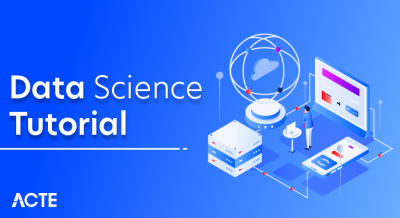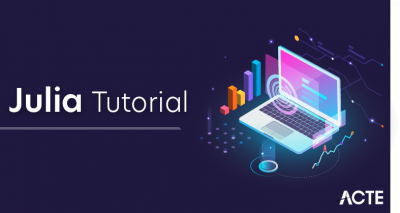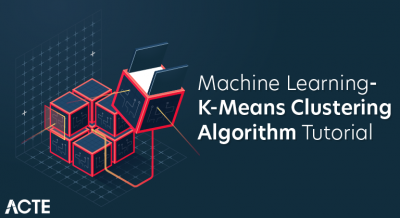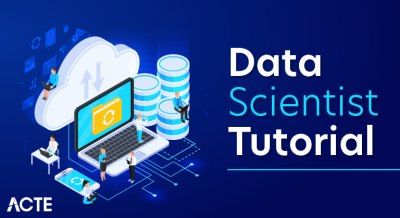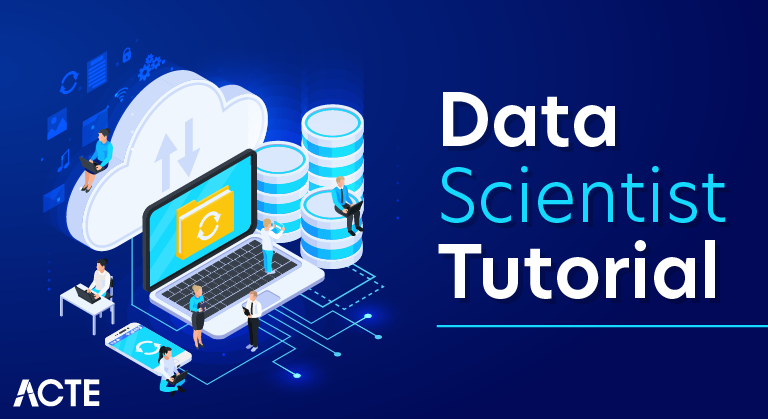
What is a Data Scientist?
Data scientists are big data wranglers, gathering and analyzing large sets of structured and unstructured data. A data scientist’s role combines computer science, statistics, and mathematics. They analyze, process, and model data then interpret the results to create actionable plans for companies and other organizations.
Data scientists are analytical experts who utilize their skills in both technology and social science to find trends and manage data. They use industry knowledge, contextual understanding, skepticism of existing assumptions – to uncover solutions to business challenges.
A data scientist’s work typically involves making sense of messy, unstructured data, from sources such as smart devices, social media feeds, and emails that don’t neatly fit into a database.
Steps to Become a Data Scientist
Here are six steps to consider if you’re interested in pursuing a career in data science:
- Pursue an undergraduate degree in data science or a closely related field
- Learn required skills to become a data scientist
- Consider a specialization
- Get your first entry-level data scientist job
- Review additional data scientist certifications and post-graduate learning
- Earn a master’s degree in data science
How to Become a Data Scientist in 2020:
Pursue an undergraduate degree in data science or a closely related field :
You will need at least a bachelor’s degree in data science, mathematics, statistics, computer science to get your foot in the door as an entry level data scientist. Degrees also add structure, internships, networking and recognized academic qualifications for your résumé. However, if you’ve received a bachelor’s degree in a different field, you may need to focus on developing skills needed for the job through online short courses or bootcamps.
Learn the required skills to become a data scientist :
- Programming
- Machine Learning techniques
- Data Visualization and Reporting
- Risk Analysis
- Statistical analysis and Math
- Effective Communication
- Software Engineering Skills
- Data Mining, Cleaning and Munging
- Research
- Big Data Platforms
- Cloud Tools
- Data warehousing and structures
This list is always subject to change. As Anmol Rajpurohit suggests in his guide to becoming a data scientist, “generic programming skills are a lot more important than being the expert of any particular programming language.
Consider a specialization :
In demand data scientists typically specialize in a particular industry or develop strong skills in areas such as artificial intelligence, machine learning, research, or database management. Specialization is a good way to increase your earning potential and do work that is meaningful to you. According to the Burtchworks Study, entry data scientists working in the tech industry earn an average salary of $85,143 and senior data scientists working for consulting firms earn an average salary of $158,462.
Get your first entry level job as a data scientist :
Once you’ve acquired the right skills and/or specialization, you should be ready for your first data science role! It may be useful to create an online portfolio to display a few projects and showcase your accomplishments to potential employers. You also may want to consider a company where there’s room for growth since your first data science job may not have the title data scientist, but could be more of an analytical role. You’ll quickly learn how to work on a team and best practices that will prepare you for more senior positions.
Here are a few certifications that focus on useful skills:
Certified Analytics Professional (CAP)
CAP was created by the Institute for Operations Research and the Management Sciences (INFORMS) and is targeted towards data scientists. During the certification exam, candidates must demonstrate their expertise of the end-to-end analytics process. This includes the framing of business and analytics problems, data and methodology, model building, deployment and life cycle management.
Earn a master’s degree in data science
Academic qualifications may be more important than you imagine. When it comes to most data science jobs, is a master’s required? It depends on the job and some working data scientists have a bachelor’s or have graduated from a data science bootcamp. However, as Burtchworks notes, data scientists typically have a graduate or advanced degree in a quantitative discipline. The Burtch Works study also shares that most data scientists have an advanced degree, either a master’s or Ph.D.
Data Scientist Responsibilities
“A data scientist is someone who is better at statistics than any software engineer and better at software engineering than any statistician”. – Josh Wills on the difference between data scientists and statisticians
On any given day, a data scientist’s responsibilities may include:
- Solving business problems through undirected research and framing open-ended industry questions
- Extract huge volumes of structured and unstructured data. They query structured data from relational databases using programming languages such as SQL. They gather unstructured data through web scraping, APIs, and surveys.
- Employ sophisticated analytical methods, machine learning and statistical methods to prepare data for use in predictive and prescriptive modeling
- Thoroughly clean data to discard irrelevant information and prepare the data for preprocessing and modeling
- Perform exploratory data analysis (EDA) to determine how to handle missing data and to look for trends and/or opportunities
- Discovering new algorithms to solve problems and build programs to automate repetitive work
- Communicate predictions and findings to management and IT departments through effective data visualizations and reports
- Recommend cost-effective changes to existing procedures and strategies
Every company will have a different take on data science job tasks. Some treat their data scientists as data analysts or combine their duties with data engineers; others need top-level analytics experts skilled in intense machine learning and data visualizations.
As data scientists achieve new levels of experience or change jobs, their responsibilities invariably change. For example, a person working alone in a mid-size company may spend a good portion of the day in data cleaning and munging. A high-level employee in a business that offers data-based services may be asked to structure big data projects or create new products.
Characteristics of a Successful Data Scientist Professional
Data scientists don’t need to just understand programming languages, management of databases and how to transpose data into visualizations – they should be naturally curious about their surrounding world, but through an analytical lens. Possessing personality traits that resemble quality assurance departments, data scientists may be meticulous as they review large amounts of data and seek out patterns and answers. They are also creative in making new algorithms to crawl data or devising organized database warehouses.
Generally, professionals in the data science field must know how to communicate in several different modes, i.e to their team, stakeholders and clients. There may be a lot of dead ends, wrong turns, or bumpy roads, but data scientists should possess drive and grit to stay afloat with patience in their research.
Advantages of Becoming a Chartered Data Scientist.
Now let’s check out some of the advantages of becoming a Chartered Data Scientist:
Global Recognition : The Chartered Data Scientist exam tests you thoroughly in various fields of data science and makes sure that you have a strong understanding of the advanced data science and in-depth knowledge of applied various tools and skills required in analytics. Therefore, succeeding in this exam and becoming a Chartered Data Scientist earns you global recognition because it proves your skill as a data scientist and demonstrates your dedication to professional excellence to the whole world.
Demonstration of Professional Experience : The designation of a Chartered Data Scientist is only awarded if you pass the Chartered Data Scientist exam and accumulate at least two years of full-time work experience in data science. Since the exam is more practice-based than theory-based and you also have work experience, being a Chartered Data Scientist will demonstrate to your future employers that you are a professional data scientist who can handle real-world problems.
Improved Employment Opportunities : Becoming a Chartered Data Scientist will demonstrate your experience and skill as a master in Data Science. This will elevate you to a group of elite Data Scientists which will also improve your employment opportunities. Since employers know that you are skilled in various domains of Data Science and have real-world work experience, they will be much more likely to hire you than ever before.
Entry into an Elite Group : Since Data science is becoming more and more popular, there are many more Data Scientists and Analysts in the market than ever before. This has resulted in stiff competition in the job market but becoming a Chartered Data Scientist will provide you an edge among the others. This will provide you entry into an elite group with access to a network of like-minded professionals that are all experts in Data Science. This will expand your connectivity and lead to many more job opportunities in the future.
Acquiring Specialized Knowledge : The Chartered Data Scientist exam contains questions from all branches of Data Science such as Linear Algebra, Exploratory Data Analysis, Supervised Learning and Unsupervised Learning Databases, Neural Networks and Deep Learning, Natural Language Processing, Computer Vision, etc. Studying all these topics deeply will ensure that you acquire specialized knowledge across the breadth of Data Science that will help you become an Expert Data Scientist.
Six steps to become a Data Scientist :
Step 1: Preparation
Future data scientists can begin preparations before they even step foot on a university campus or launch themselves into an online degree program. Becoming proficient with the most widely used programming languages in data science such as Python, Java, and R — and refreshing their knowledge in applied math and statistics — will help aspiring data scientists get a head start. In fact, entering college with an already established skillset frequently improves a student’s learning rate. But, also, early exposure to data science knowledge requirements is helpful for determining whether a data science career is the right fit.
Step 2: Complete undergraduate studies
The most sought-after majors for data science are statistics, computer science, information technologies, mathematics, or data science (if available). Minoring in one of the aforementioned fields is also recommended. Continue to learn programming languages, database architecture, and add SQL/MySQL to the “data science to-do list.” Now is the time to start building professional networks by looking for connections within college communities, look for internship opportunities, and ask professors and advisors for guidance.
Step 3: Obtain an entry-level job
Companies are often eager to fill entry-level data science jobs. Search for positions such as Junior Data Analyst or Junior Data Scientist. System-specific training or certifications in data-related fields (e.g., business intelligence applications, relational database management systems, data visualization software, etc.) might help when looking for entry-level data science jobs.
Step 4: Earn a Master’s Degree or a Ph.D.
Data science is a field where career opportunities tend to be higher for those with advanced degrees. The in-demand graduate degrees for data science include the exact same specifications for an undergraduate degree: data science (if available), computer science, information technology, math, and statistics. However, many companies also accept STEM degrees such as biotechnology, engineering, and physics (among others). Also keep in mind that data scientists need to understand how to use enterprise-grade data management programs and how distributed storage and computation operate (e.g., Hadoop, MapReduce, and Spark) in relation to model building and predictive analytics.
Step 5: Get promoted
Additional education and experience are key factors that lead to being promoted or becoming a data scientist in high demand. Businesses value results. Coupling strong technical skills with project management and leadership experience will generally chart a course towards more significant opportunities and higher compensation.
Step 6: Never Stop Learning
Staying relevant is crucial to the ever-evolving field of data science. In this age of constant technological innovation, continuing education is a hedge against shifts in the career market. This is also the case for data science since the field isn’t as established as other statistically and technologically focused careers. A career-oriented data scientist is always learning and evolving with the industry. Continue to network and look for educational and professional development opportunities through boot camps and conferences.
Data Scientist Salary
A data scientist’s salary depends on years of experience, skillset, education, and location. According to The Burtchworks Study, employers place greater value on data scientists with specialized skills, such as Natural Language Processing or Artificial Intelligence. West coast Data scientists earn the highest average salary and entry level data scientists can expect to earn at least $90,000. The BLS claims skilled computer research and information scientists, which include data scientists, enjoy excellent job prospects because of high demand.
Data Scientist
- Average Data Scientist Salary: $118,370 per year
- Lowest 10%: $69,230
- Highest 10%: $183,820
Senior Data Scientist
- Median Sr. Data Scientist Salary: $171,755
- Total Pay Range: $147,000 – $200,000
What’s in a data scientist’s toolbox?
These terms and technologies are commonly used by data scientists:
- Data visualization: the presentation of data in a pictorial or graphical format so it can be easily analyzed.
- Machine learning: a branch of artificial intelligence based on mathematical algorithms and automation.
- Deep learning: an area of machine learning research that uses data to model complex abstractions.
- Pattern recognition: technology that recognizes patterns in data (often used interchangeably with machine learning).
- Data preparation: the process of converting raw data into another format so it can be more easily consumed.
- Text analytics: the process of examining unstructured data to glean key business insights.

This diagram, and others like it, attempt to assign labels and/or characterize the person or field that lies at the intersection of each of the primary competencies shown, which I’m calling pillars here.
As this diagram shows, Stephan Kolassa labels ‘The Perfect Data Scientist’ as the individual who is equally strong in business, programming, statistics, and communication. I agree completely.
Data Science Goals And Deliverables :
In order to understand the importance of these pillars, one must first understand the typical goals and deliverables associated with data science initiatives, and also the data science process itself. Let’s first discuss some common data science goals and deliverables.
Here is a short list of common data science deliverable:
- Prediction (predict a value based on inputs)
- Classification (e.g., spam or not spam)
- Recommendations (e.g., Amazon and Netflix recommendations)
- Pattern detection and grouping (e.g., classification without known classes)
- Anomaly detection (e.g., fraud detection)
- Recognition (image, text, audio, video, facial, …)
- Actionable insights (via dashboards, reports, visualizations, …)
- Automated processes and decision-making (e.g., credit card approval)
- Scoring and ranking (e.g., FICO score)
- Segmentation (e.g., demographic-based marketing)
- Optimization (e.g., risk management)
- Forecasts (e.g., sales and revenue)
Each of these is intended to address a specific goal and/or solve a specific problem.
For example, a data scientist may think that her goal is to create a high performing prediction engine. The business that plans to utilize the prediction engine, on the other hand, may have the goal of increasing revenue, which can be achieved by using this prediction engine.
While this may appear to not be an issue at first glance, in reality the situation described is why the first pillar (business domain expertise) is so critical. Often members of upper management have business-centric educational backgrounds, such as an MBA.
While many executives are exceptionally smart individuals, they may not be well versed on all the tools, techniques, and algorithms available to a data scientist (e.g., statistical analysis, machine learning, artificial intelligence, and so on). Given this, they may not be able to tell a data scientist what they would like as a final deliverable, or suggest the data sources, features (variables), and path to get there.
Even if an executive is able to determine that a specific recommendation engine would help increase revenue, they may not realize that there are probably many other ways that the company’s data can be used to increase revenue as well.
It can therefore not be emphasized enough that the ideal data scientist has a fairly comprehensive understanding about how businesses work in general, and how a company’s data can be used to achieve top-level business goals.
With significant business domain expertise, a data scientist should be able to regularly discover and propose new data initiatives to help the business achieve its goals and maximize their KPIs.
CONCLUSION:
For any company that wishes to enhance their business by being more data-driven, data science is the secret sauce. Data science projects can have multiplicative returns on investment, both from guidance through data insight, and development of data product. Though, hiring people who carry this potent mix of different skills is easier said than done. There is simply not enough supply of data scientists in the market to meet the demand (data scientist salary is sky high). Thus, when you manage to hire data scientists, nurture them. Keep them engaged. Give them autonomy to be their own architects in how to solve problems. This sets them up in the company to be highly motivated problem solvers, there to tackle the toughest analytical challenges.


